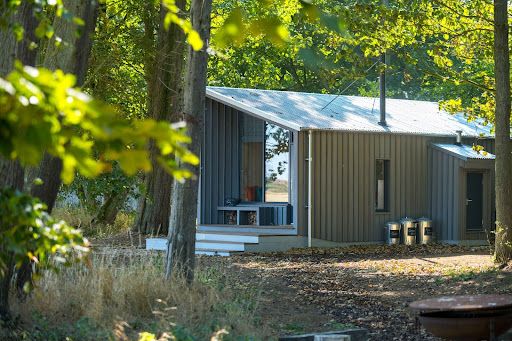Introduction: Green Living Isn’t Just for Holidays, it’s our daily life
Travel opens our eyes not just to new places, but to new possibilities for how we live. It slows us down, connects us to nature, and teaches us that the most powerful changes often start small. However, sustainable travel is often treated like a holiday checkbox. Something we think about when booking eco-stays or avoiding plastic on flights. But sustainability is more than just holidays; it's a part of our daily lives.
In reality, a sustainable lifestyle is not something you turn on and off when you pack a suitcase. It’s a way of being that begins at home and follows you into the world. The habits that shape your green living at home, whether that’s reducing waste, shopping consciously, or supporting ethical brands, are the same ones that turn travel into something meaningful and respectful.
We live in a time where the urgency of sustainability is undeniable. From climate change to pollution and over tourism, the pressures on the planet are mounting. While no one person can solve it all, living with intention matters. The ripple effect of our choices creates a greener life for ourselves and the communities we impact.
This guide isn’t about perfection. It’s about paying attention. Whether you’re new to the idea of eco-friendly habits or already building a more sustainable living routine, this is your invitation to look beyond holidays and start seeing conscious travel as a lifestyle rooted in everyday choices.
Because the real journey of green living doesn’t begin when you board a plane. It begins with how you live today.
Want to explore the travel side of sustainable living? Don’t miss our guide to Sustainable Travel: Your Ultimate Guide to Exploring Better, perfect for those planning a trip with purpose.
Conscious Living Starts at Home
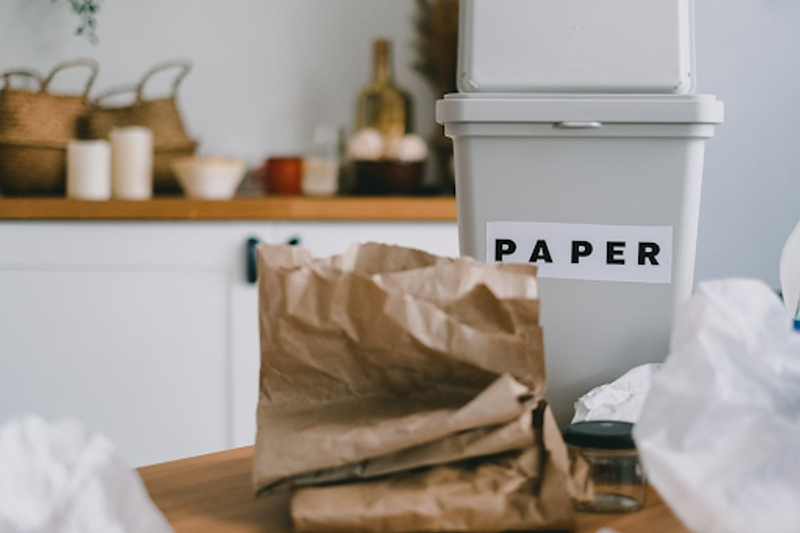
We often underestimate the power of our smallest decisions. We forget the ripple effect. And we fall into the easy trap of thinking, "Just for today, it doesn't matter." A takeaway coffee in a plastic cup. A quick scroll past a local business in favour of a next-day delivery. A bin full of packaging that could have been avoided. It feels harmless in the moment. But multiply that across weeks, years, and millions of people, and suddenly, it's not so small.
This is where conscious living begins in the unnoticed corners of daily life. Before the travel plans, before the Instagram photos and eco-stay bookings, it begins with how you live on an ordinary Tuesday afternoon. These small, everyday acts are the foundation of green living.
Research Commissioned by Sustainable Cleaning Brand Toucan Eco into the habits of 2,000 British households highlighted households’ desire to be more eco-friendly, with just 2% of respondents saying they didn’t consider it important to reduce plastic waste.
Not sure where you stand? Take a moment to calculate your current impact with the WWF Footprint Calculator.
It only takes a few minutes and can help you identify simple areas where you can live more sustainably, starting today.
Choosing a reusable water bottle might not feel revolutionary. Eating less meat or supporting a second-hand store might seem like tiny actions. But every time you make a mindful choice, you're reinforcing the kind of person you want to be. And that identity doesn't disappear when you go on holiday. It comes with you. It influences the way you explore, what you value, and what kind of impact you leave behind.
Let's not sugar-coat it. The world is in crisis. Convenience has been sold to us as freedom, but it's costing us our future. And while systems need to change, so do we. Because habits build culture. And culture drives change.
If you've ever felt helpless reading about melting glaciers or rising sea levels, start here. Start with how you eat. What you throw away. Who do you buy from? How do you move through your day? These actions may not be glamorous or Instagrammable, but they are powerful. Because they show you're paying attention. And that attention builds integrity.
The more you live with intention, the more naturally travel becomes sustainable. You won't need to Google "eco-stays near me." You'll already know what to look for. You won't panic-pack fast fashion for a last-minute trip. You'll have a capsule wardrobe that reflects your values. Tourist traps or gimmicks won't sway you. You'll look for places and people that matter.
Sustainable living isn't just a goal, it's a practice. Conscious living is not about being perfect. It's about being awake. It's about choosing what aligns, even when no one's watching. Especially then. Those are the eco-friendly habits that follow you into airports, mountain villages, crowded cities, and back home again.
This is where it starts. Not when you book your next trip. But now. Right here, in the choices you make today. That's the heart of a greener life.
Even choosing a reusable water bottle or eating less meat may seem small, but these everyday choices shape our mindset for travel too.
Want help getting started? WWF's guide to sustainable living breaks it down beautifully.
Travel is a Mirror of Your Values
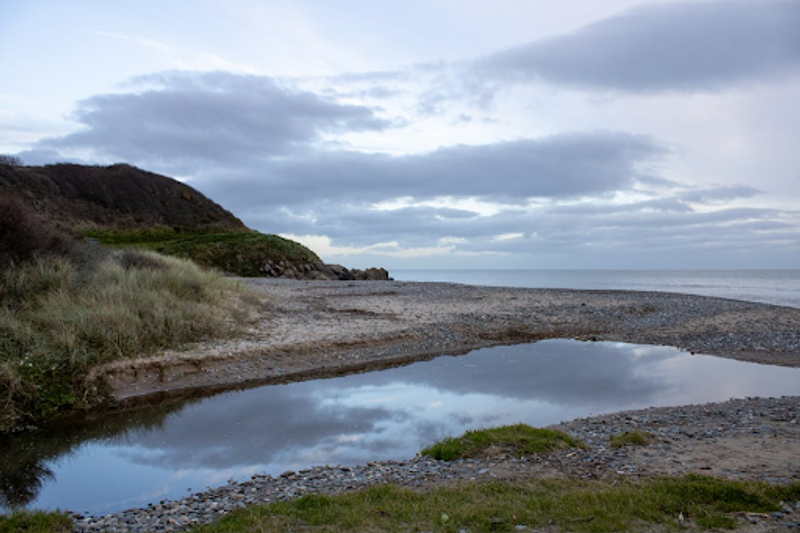
Let's pause and be honest.
Not everyone travels to "find themselves" or change the world. Most of us book a trip because we need a break. Life gets heavy, work gets stressful, and we just want to unwind. To sit on a beach. To sip something cold. To forget the deadlines and pressure. And there's nothing wrong with that.
You're allowed to want ease. You're allowed to seek joy.
So, when the idea of sustainable travel comes up, making thoughtful choices and asking deeper questions can feel overwhelming, like one more thing to worry about when you're just trying to relax.
You might think:
"Do I really have to think about sustainability on holiday?"
"I'm only one person."
"It's just one week."
"Does it even matter?"
But here's the truth: "IT DOES"
Because that one week becomes millions of one-weeks. Small choices where you stay, what you support, and how you treat a place ripple out. That "just one" booking or plastic cup becomes part of something much bigger. You didn't mean harm. You just didn't see it.
That's why this matters. Not to make travel heavy, but to make it less blind.
Travel reveals who we are when no one's watching. It shows how we behave when we're free. That freedom is powerful. But it comes with responsibility. You don't need to give up comfort. You can still book beautiful places, eat amazing food, take photos, and laugh with friends. But you can also ask:
Who benefits from my presence here?
Choose businesses that give back. Speak to locals, not just staff. Slow down, instead of treating destinations like a checklist. These are simple, eco-friendly habits that make your experience more human and less hollow.
And when you travel this way, something shifts.
Your journey starts to feel deeper. You remember people, not just places; you remember moments, not just monuments. You bring stories home, not just souvenirs. Suddenly, it wasn't just a trip; it was a connection.
So if you've ever asked, "Why should I care?"
The answer is simple:
Because caring turns travel into transformation.
Because the world doesn't need more tourists. It needs more conscious humans.
You don't have to be perfect. You just have to be aware.
And that's how green living begins to shape your travel and your life.
The Joy of Slow Travel (Why You’re Still Tired After a Holiday)
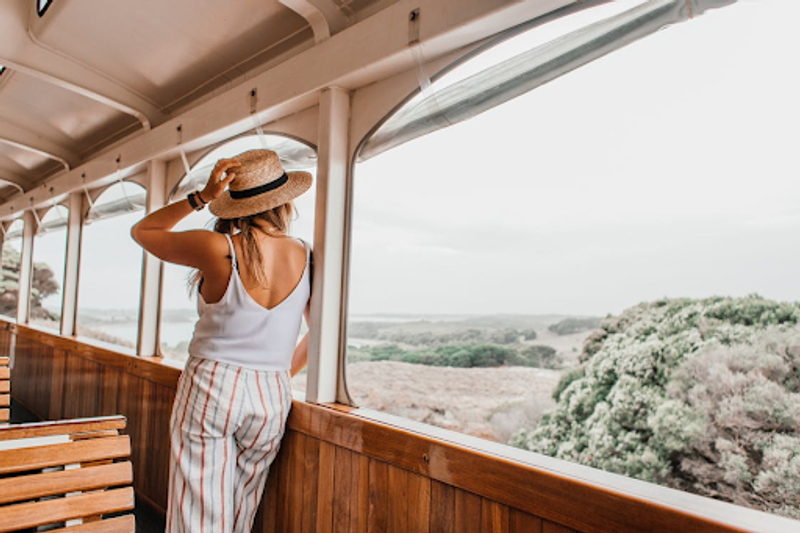
Do you ever feel like you need a vacation after your vacation?
You get home, scroll through the photos, and say, “It was hectic but great.” But deep down, you’re tired. That kind of exhaustion is a sign that maybe, just maybe, we’re travelling too fast.
We cram too much in. Bounce from city to city. Spend more time on Google Maps than looking up. And in all the rush, we forget to rest.
Slow travel changes that.It’s not about skipping fun, it’s about skipping the frenzy. When you stay longer in one place, you stop moving through it like a tourist and start living in it, even just a little. You wake up without a plan, find your favourite coffee spot, talk to locals, and let the destination unfold slowly.
This is where sustainable travel meets emotional wellbeing. It gives your mind and body space to pause. And instead of coming home burnt out, you come home more alive.

Low-Impact Travel: Good for You, Better for the Planet
Slow travel isn’t just better for your wellbeing, it’s a win for the planet too.
Choosing local trains over short flights, or staying in one region instead of five, reduces emissions and relieves pressure on communities. These small decisions are at the heart of real sustainability.
You don’t have to go to extremes. Just staying a bit longer and doing a bit less creates a gentler footprint. That’s how eco-friendly habits make travel more meaningful.
You also stop chasing the “perfect” trip. When things go wrong, weather, delays, or changes, it doesn’t ruin your plans. You’re already in the flow. And that flexibility makes the journey more human.
This slower, more mindful way of exploring is also an extension of a sustainable lifestyle. You’re no longer consuming places, but connecting with them. You’re respecting local rhythms, spending thoughtfully, and engaging with intention.
This is how green living shows up on the road, not in grand gestures, but in choosing depth over speed. And when you come home, those habits stick. That’s how a greener life grows one slow step at a time.
Booking with Purpose: Where You Stay Matters
We usually choose accommodations based on convenience, such as their proximity to attractions, whether they offer complimentary breakfast, or have a pool. It’s easy to treat where you stay like a background detail. But it quietly shapes everything: your experience, your impact, and what your money supports.
That one hotel booking? It’s not just “a room.” It’s part of your sustainability footprint.
In many destinations, tourism is displacing locals, depleting natural resources, and turning neighbourhoods from homes to holiday zones. What feels like luxury for us can sometimes come at a real cost for the people who live there. The UK’s “best beach town” was recently in the spotlight due to littering and tourist-related pollution, as shared by a concerned resident. It’s a reminder that when we travel without care, even our favourite destinations can suffer.
This isn’t about guilt, it’s about awareness. Because with awareness comes choice. When you book consciously, your money supports something better: sustainable living, shared benefits, and respect for culture and the local community. It’s a quiet but powerful way to practice green living — even while resting.
Want to discover places that reflect your values? MyEcoEscape connects you with eco-conscious retreats and eco-stays that give back to the planet and local communities.
How to Book Better: From Transactions to Real Connections
Staying in a family-run guesthouse or certified eco-stays doesn’t just reduce your impact, it makes your trip more memorable.
You get honest conversations, local tips, and homemade food. You meet people who live in the place, not just work there. You feel welcomed, not processed.
These businesses often prioritise environmental protection, using less energy and water, sourcing food locally, and minimising waste. They reflect the same values you’d apply to your sustainable lifestyle back home. It may take an additional five minutes of research, and what you get in return is real: integrity, connection, and peace of mind.
And when you leave, you don’t just feel rested. You feel proud.
Because those are just one booking? They matter. When more travellers choose eco-friendly habits, the ripple effect becomes huge. Systems shift. Communities thrive. The future of sustainable travel becomes brighter.
So next time you book a stay, ask yourself:
Who owns this place? Who benefits? What values does it support?
Because those answers don’t just shape your trip, they shape a greener life for everyone.
Packing for the Planet
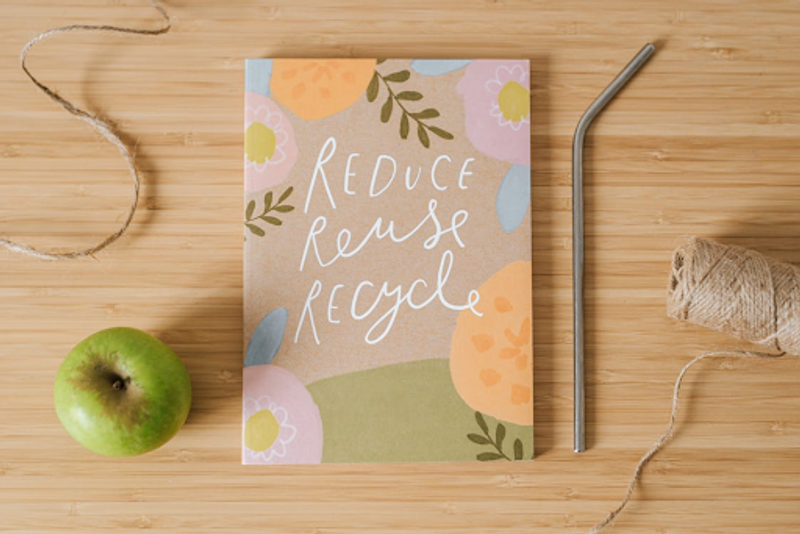
Why What’s in Your Bag Matters
Let’s be real, packing is rarely the highlight of travel planning. Most of us do it last minute, overpack “just in case,” and throw in things we never use. But every item you bring tells a story not just about your trip, but about your values.
That plastic-wrapped mini shampoo? That fast fashion outfit you’ll wear once? They might seem small, but they add up. Multiply that across millions of travellers and you start to see the bigger picture, one that ties directly into sustainability.
Sustainable travel doesn’t start when you reach your destination. It begins at home, in how you prepare. That’s where small, eco-friendly habits come in, and they don’t require buying an entirely new “green” wardrobe or gear set.
Pack Light, Pack Right: The Greener Way to Travel
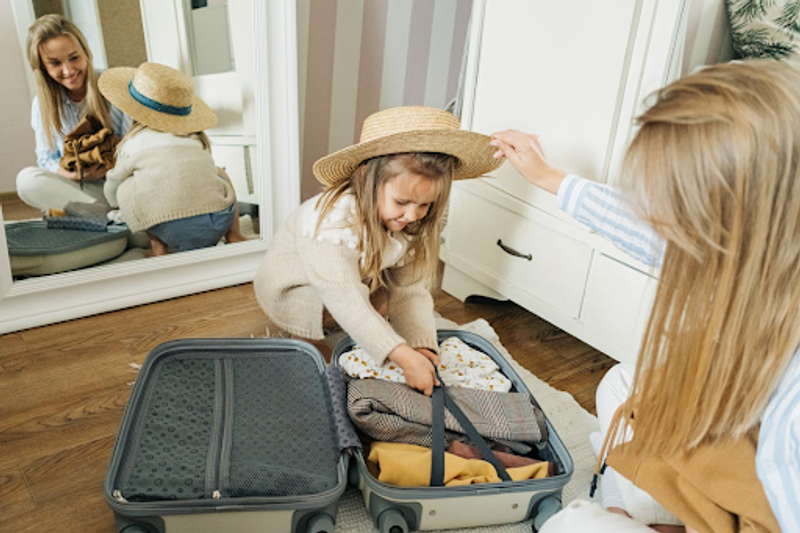
Packing consciously is about asking better questions:
Do I need this? Can I reuse it? Is there a better material or version of this item?
Bringing a reusable water bottle, a solid shampoo bar, and a tote bag, they’re all simple switches that reflect your sustainable lifestyle. They save space, reduce waste, and often last far longer than their disposable counterparts.
The bonus? You’ll likely feel lighter, more organised, and less overwhelmed. When you pack with intention, you actually enjoy your trip more, fewer decisions, less clutter, and a sense of calm that aligns with the pace of green living.
And let’s be honest, we’ve all packed things we never touched. Packing smarter doesn’t mean you give up comfort or style. It means choosing well. Choosing less. Choosing like someone who’s thinking long-term about the trip and the planet.
Because those zip-up moments? They’re a reflection of who you are and what kind of greener life you want to build, one trip at a time.
The Carbon Cost of Convenience
We live in a world that celebrates speed. Bookings in seconds. Flights across continents for weekend getaways. Everything about modern travel feels fast, easy and effortless. But behind that ease is a hidden cost: carbon emissions.
A short flight can release as much CO₂ as driving for several weeks. Frequent flyers? Their footprint grows fast. And while it might feel like your one trip doesn’t matter, multiply it by millions, and the impact becomes impossible to ignore.
When you start paying attention to your sustainability footprint, you realise travel can be one of the biggest contributors. But that doesn’t mean giving it up. It means rethinking how we move through the world.
Because real sustainable travel isn’t about perfection. It’s about choosing with care, especially when convenience tempts you to do otherwise.
Smarter Travel, Lighter Impact

You don’t have to swear off flying forever. But you can start with small shifts that make a difference:
- Choose trains or buses over short-haul flights when you can.
- Stay in one place for longer instead of bouncing between destinations.
- Offset carbon emissions, but make sure it’s through credible organisations.
For example: A flight from London to Edinburgh emits approximately 159.9 kg of CO₂ per passenger, compared to just 20.7kg by train. That’s nearly 5x more carbon for the same trip. Choosing the scenic rail journey not only cuts emissions drastically, but also lets you relax and enjoy the changing landscapes along the way.
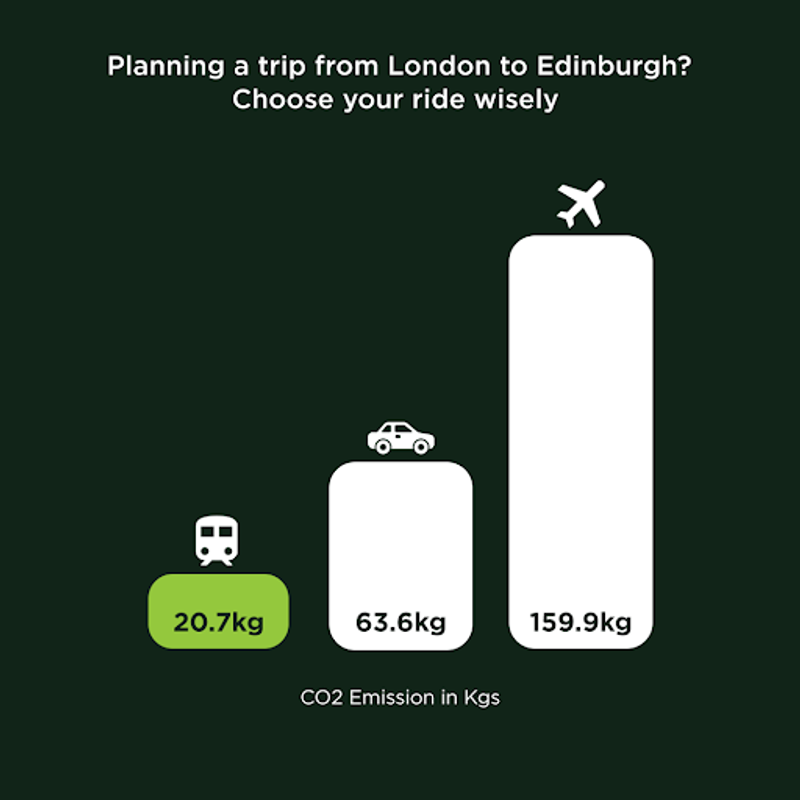
These are eco-friendly habits that reduce harm while still allowing joy.
Furthermore, consider travelling during off-peak times or exploring closer to home. You’ll still experience richness just with a lighter footprint.
The goal isn’t to restrict you. It’s about building a sustainable lifestyle where travel aligns with your values, not against them. Because when we travel mindfully, we protect the very places we love to visit.
Without these shifts, the reality is sobering:
Bleached reefs, vanishing glaciers, and communities facing drought or floods. But when enough of us choose a slower, more conscious path, we create change.
Green living isn’t just for the home. It travels with you from your carbon choices to how you see the world.
So next time you hit “book now,” pause. Ask:
Is there a better, lower-impact way to do this?
Because in that pause, a greener life begins, one decision at a time.
Conscious Choices That Stick (Even When You’re Not Travelling)
You don’t have to be on a trip to make a difference.
In fact, some of the most powerful changes happen when you're just living your regular life at home, at work, even while ordering groceries online. Conscious travel isn’t just about what you do on a holiday. It’s a mindset that can shape how you live every single day.
But why should I care about this at home?
Because the planet doesn't pause when your trip ends.The same values, care, respect, and responsibility, can guide your choices all the time.
Think of it like this:Travelling sustainably for 7 days is great.Living sustainably for the other 358 days? That’s game-changing.
What difference can I really make?
You might wonder, “I’m just one person. Will it matter?” Yes. And here’s why:
- Millions of small changes = massive impact. Imagine if even 10% of people brought their own bags, switched to second-hand, or ate less meat. That’s millions of plastic bags saved, tons of emissions avoided, and real pressure on companies to do better.
- You influence others without realizing it. A friend sees you bring your bottle, and they get inspired. You post about a local store, and three more people try it.
A single drop doesn’t make a wave, but enough drops do.
So what can I do?
Here are simple things you can start doing today:
- Use what you have. Don’t rush to buy “eco” stuff. The most sustainable thing is the thing you already own.
- Switch one habit at a time. Start with reusable items, such as a tote bag, a metal water bottle, or solid toiletries.
- Eat greener. Try going meat-free once or twice a week. Every plant-based meal helps reduce water use and emissions.
- Buy less, choose better. Shop second-hand when you can. If you need new, support small or ethical brands.
- Clean up your digital life. Unsubscribe from emails and delete old files; digital storage also consumes energy.
- Bank wisely. Some banks invest in fossil fuels. Others support clean energy. Look it up, switching can be surprisingly easy.
What if I don’t do any of this?
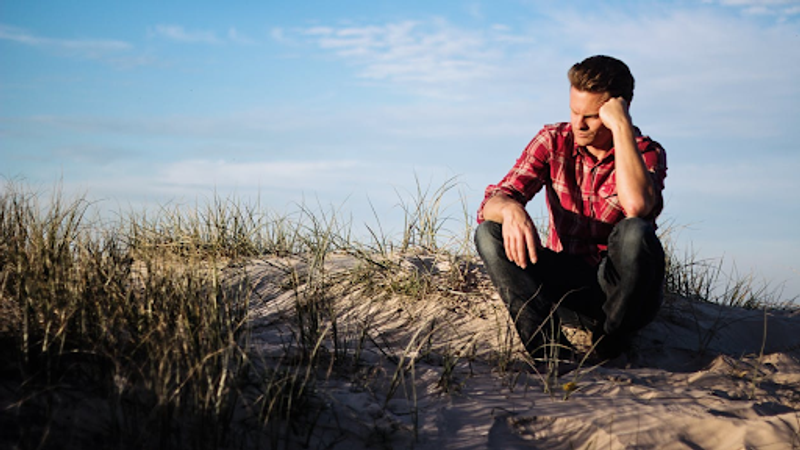
Honestly? Nothing changes, and everything gets worse.
- Climate change will keep accelerating.
- More forests will be cut.
- More communities will face floods, fires, and droughts.
- The beautiful places we love to visit might not stay the same.
And the worst part? Those hit hardest are often people who did the least to cause the problem.
Here's the truth:
You don’t have to be perfect. You just have to care enough to start.
Whether you’re travelling or not, your choices have power. When you live more consciously, you travel better, feel better, and do better for yourself and for the planet.
Because being mindful isn’t something you switch on during holidays. It’s a way of living one habit, one step, one moment at a time.
Inspiring a Movement: Share, Influence, Connect
Once you start making conscious choices, it is easy to think you are doing it just for yourself. But the truth is, your actions can influence so many others. Every decision you make, from choosing a train over a flight to staying in a local eco-stay, has the potential to inspire someone else to do the same.
You do not need to be an influencer. You just need to be real.
If you’re looking for easy, actionable tips to get started on your journey, check out our blog on 10 Simple Sustainable Travel Practices for Eco-Conscious Travellers. It's a simple guide to making better choices wherever you go.
Why does sharing matter?

Because most of us learn through stories. When someone sees you making small but meaningful changes, it shows them that they can too. When you talk about the place you stayed, the little swaps you made, or how good it felt to travel slowly, you are giving others a glimpse of what conscious travel can look like.
Even a casual conversation, a photo on your story, or a positive review online can spark curiosity. It can plant an idea. And sometimes, that’s all it takes to get someone else started.
How can I influence without sounding preachy?
Be honest and kind. Share your journey in a way that feels natural. You do not need to be perfect or do everything at once. People relate to honesty more than perfection.
Talk about what you are learning and what challenges you are facing. Ask questions instead of giving advice. Invite others to try something new rather than telling them what they should do.
Most of all, remember that your tone matters. Lead with curiosity and care, not guilt.
What happens when more people get involved?
When more of us start choosing better options, it creates change. It tells businesses and governments that people care about sustainability. It pushes companies to reduce waste, rethink their practices, and invest in better alternatives.
Movements grow when everyday people take small actions and talk about them. One person becomes two. Two becomes ten. Ten becomes a wave that spreads far beyond what we can imagine.
When you connect with others who care about conscious travel, you feel less alone and more empowered. You start to see that your choices are part of something bigger.
How can I connect and keep the momentum going?
You can follow conscious travel pages and communities online. Join groups where people share tips and ideas. Leave thoughtful reviews that mention eco-friendly features. Support businesses that are doing the right thing. Even talking to friends and family about your travel experiences can have an impact.
You don’t need to have all the answers. You just need to keep showing up, learning, and caring.
Want to connect with like-minded travellers? Say “Hi, I want to be a part of the MyEcoEscape community” at info@myecoescape.co.uk. Start receiving our monthly newsletter filled with inspiring stories from eco-travellers, eco-stays, and the amazing hosts behind them.
A reminder
You may not always see the instant result, but it is happening. Someone might make a better choice tomorrow because of what you shared today. That is how change begins. Not with big speeches, but with small moments of honesty, kindness, and action.
Keep doing what you are doing. And do not be afraid to talk about it.
Conclusion: A Lifestyle, Not a Checklist
Conscious travel is not something you start and finish. It is not a checklist that you complete and move on from. It is a way of thinking, a way of living, and a way of caring for the world, wherever you are.
You do not have to be an expert to make a difference. You just need to start.
You may be beginning to notice your impact. Or maybe you have already made changes. Wherever you are on this path, what matters most is that you are trying. You are asking questions, making thoughtful choices, and caring. That is powerful.
So, where do I begin?
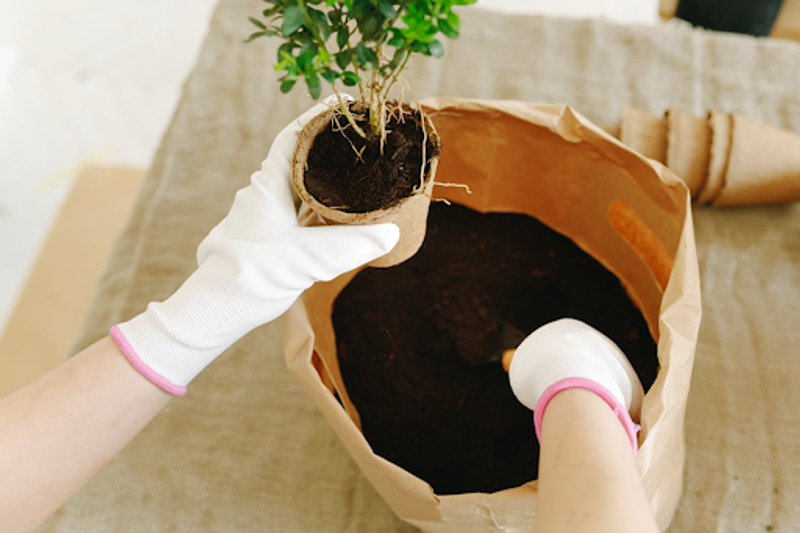
Start right where you are, conscious travel begins at home. It’s in what you eat, how you move, what you support, and how you think.
Pick one small habit: shop second-hand, walk instead of driving, ask “Who made this?” or “Where did it come from?” These choices matter.
When you travel, go with a purpose and an open mind. Aim to leave a positive impact, not just a footprint.
Thank you for caring. The planet may be silent, but it responds to every conscious choice you make.
